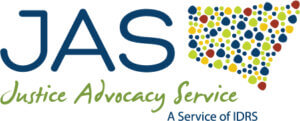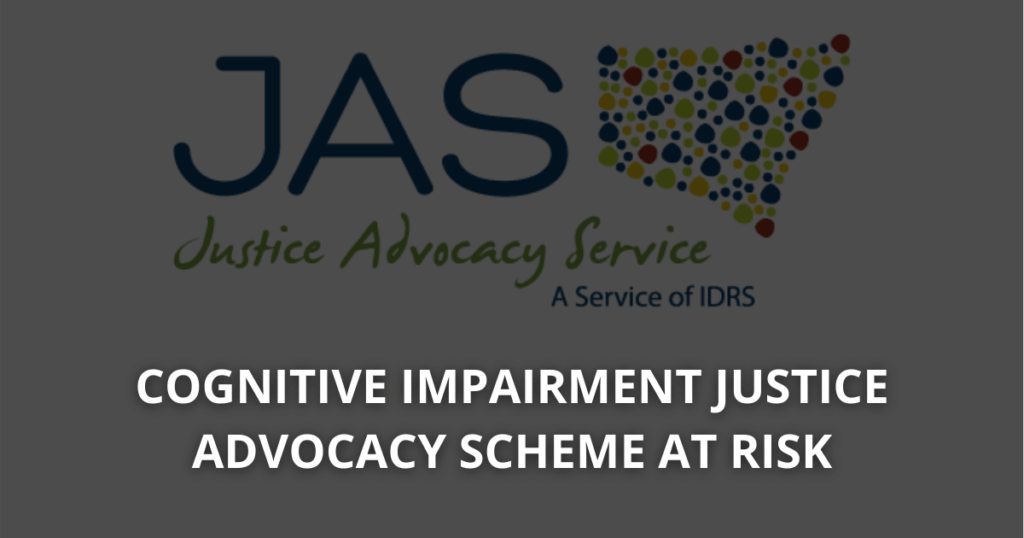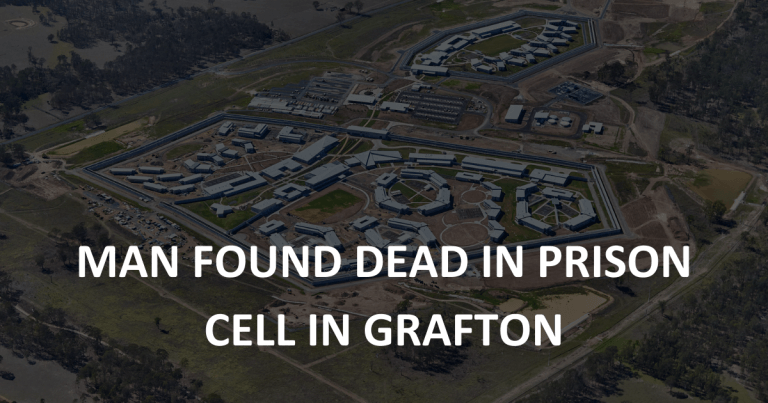People with cognitive impairments may need to appear in NSW courts without any qualified support person as government funding begins to run out.
The Justice Advocacy Service (JAS) provides support to people with cognitive impairments who come into contact with the criminal justice system. This includes victims, witnesses, suspects and defendants.
The NSW State Government hasn’t secured funding for JAS beyond June 30 and there are fears that the service will meet the same fate as the Cognitive Impairment Diversion Program.
“It was so important to me…”
 Twenty-six-year-old woman Taylor Budin has first-hand experience of the Justice Advocacy Service.
Twenty-six-year-old woman Taylor Budin has first-hand experience of the Justice Advocacy Service.
Ms Budin came into contact with the criminal justice system after she was charged with assault in 2016 after standing up for a friend.
Ms Budin was put in touch with the Cognitive Impairment Diversion Program and JAS. During the process, she got a diagnosis of borderline intellectual functioning and autism for the first time.
Her caseworker ended up advocating for Ms Budin.
“It was so important to me to have the same person to meet with regularly, knowing there was someone in my corner. It was the best thing that ever happened,” she told the Sydney Morning Herald.
In budget estimates next week we will focus on the cooked priorities that see billions spent on new jails while programs like this, that cost so much less and do real good, are cut. Justice support scheme for cognitively impaired youth and adults at risk. https://t.co/NX0oVOsUxM
— David Shoebridge (@ShoebridgeMLC) February 21, 2021
Cognitive disability significantly over-represented in the criminal justice system
JAS supported more than 1100 people in the last six months. On average, “each person was supported on at least three occasions at courts, police stations or during legal interviews”, the Intellectual Disability Rights Centre and Council for Intellectual Disability said.
IDRS chief executive Janene Cootes said it was “a disturbing reflection on our society that people with cognitive disability are significantly over-represented in our criminal justice system”.
“As the horrific evidence unfolding in the Disability Royal Commission shows, it’s tough in the justice system if you have a cognitive disability, whether you are a victim of crime or have been accused of a crime,” she said.
“We urge the NSW government to show leadership by committing to an ongoing statewide Justice Advocacy Service and a new statewide diversion program so people with cognitive disability will have a fair go as victims, witnesses or people accused of crimes.”
NSW Government considers JAS

Attorney-General Mark Speakman said the state government commits to helping people with cognitive impairments navigate the criminal justice system.
His department was “presently considering the findings of an independent evaluation of the Justice Advocacy Service which examined the service’s effectiveness”. He expected to receive a briefing within weeks.
“Additional services to support diversion for people with cognitive impairment are also being considered as part of the NSW Budget process,” Mr Speakman said.






